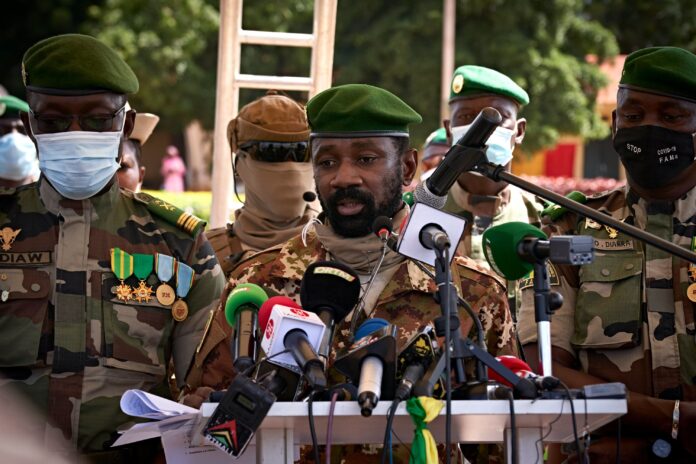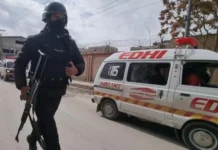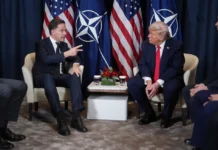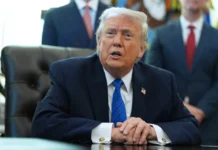Mali’s ruling military junta has dissolved all political parties and associations in an unprecedented move that deepens fears of authoritarian entrenchment and signals a sharp reversal in the country’s democratic trajectory.
The decree, announced in a televised broadcast on Tuesday and approved by interim president Colonel Assimi Goïta, follows a series of anti-government protests and mounting criticism from opposition groups and human rights organizations.
The government justified the decision as a response to “threats to public order,” citing demonstrations held on May 3 and 4 that called for a return to civilian rule. Protesters carried signs reading “Down with dictatorship, long live democracy,” in one of the most visible acts of public dissent since the military seized power in two successive coups in 2020 and 2021.
The clampdown comes amid reports of enforced disappearances of opposition figures. Human Rights Watch (HRW) reported on Thursday that Abba Alhassane, Secretary-General of the Convergence for the Development of Mali (CODEM), was abducted by masked gunmen. On the same day, El Bachir Thiam, leader of the Yelema party, was allegedly seized by unidentified men in Kati, just outside the capital, Bamako.
In another incident, CODEM reported it had lost contact with Abdoul Karim Traore, a youth leader, and suspects he may have also been forcibly taken. Malian authorities have not issued any official statements regarding these arrests or disappearances.
The dissolution of political parties follows a decree issued last week suspending all political activities nationwide, a move that effectively silenced plans for another anti-government protest scheduled for May 10. The timing of the suspension, alongside the detentions, has raised alarms among international observers and civil society groups.
“This is a systematic dismantling of democratic space in Mali,” said Ilaria Allegrozzi, a senior Sahel researcher at HRW. “The regime is using force, fear, and legal decrees to eliminate opposition and consolidate power.”
The crackdown follows an April national conference, organized by the junta, that controversially recommended extending Goïta’s presidency until 2030—a proposal widely rejected by political opponents and rights groups.
Goïta first came to power in August 2020 amid popular unrest and a deteriorating security environment fueled by jihadist insurgencies linked to al-Qaeda and the Islamic State. While he initially pledged to return Mali to civilian rule, those elections—originally scheduled for 2022—have been repeatedly delayed.
Since 2022, the regime has deepened ties with the Russian paramilitary Wagner Group, whose fighters, alongside Malian troops, have been accused of atrocities against civilians. HRW reported in December that Malian forces and Wagner operatives deliberately killed at least 32 civilians and burned over 100 homes in central and northern regions.
The political shutdown and reported abductions represent the starkest signal yet that Mali’s transitional military authorities are moving away from even the facade of democratic governance.
International responses have so far been muted, but analysts warn the dissolution of political parties may provoke further unrest and deepen Mali’s isolation from regional blocs and international donors.
“This isn’t just a democratic setback—it’s a full retreat,” said a Bamako-based political scientist who requested anonymity due to security concerns. “If this becomes the new status quo, Mali will enter a period of darkness not seen since the worst days of military rule.”
By Kelly Were



















